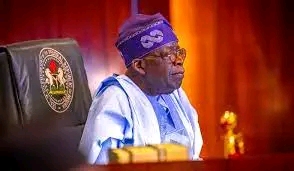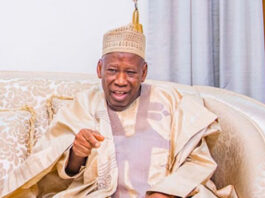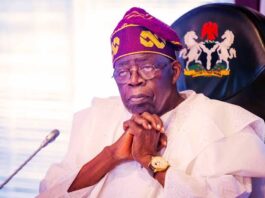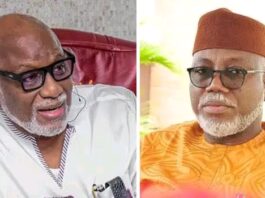Since President Bola Tinubu’s inauguration on May 29, 2023, five Nigerian states have held gubernatorial elections, with the All Progressives Congress (APC) emerging victorious in four out of the five states.
For those unfamiliar with the concept of off-cycle elections in Nigeria, it’s important to understand why some states conduct gubernatorial elections outside the regular General Election period, which took place in early 2023. This article explains the reasons behind the off-cycle polls that have been held since May 2023.
What are Off-Cycle Elections in Nigeria?
Off-cycle elections are those that occur outside of the general election timetable, which happens every four years. During general elections, Nigeria holds Presidential, National Assembly, Gubernatorial, and State House of Assembly elections simultaneously.
While the general election in 2023 saw the election of governors in most states, some states did not participate. This is due to issues arising during previous elections in those states, which led to the need for off-cycle gubernatorial elections. States like Bayelsa, Kogi, Anambra, Imo, Osun, Ondo, Edo, and Ekiti are among those with off-cycle election histories.
Reasons for Off-Cycle Elections
The practice of off-cycle elections began in 1999, when Nigeria returned to democracy. In that year, elections were held across all states, but some candidates, dissatisfied with the outcomes, petitioned the courts to reclaim their mandates. As a result, the electoral petition tribunals ordered the dismissal of several governors, triggering re-elections in certain states.
This is how several states became subject to off-cycle elections.
Key Off-Cycle Elections in Nigerian States
Anambra State
Anambra set a precedent in 2003, when Chris Ngige of the PDP was declared governor. However, Peter Obi of APGA petitioned the election results. After a lengthy tribunal case, the Court of Appeal in 2006 declared Obi the rightful winner, initiating a new four-year term for him. Anambra has since held elections in November 2013, 2017, and 2021, with the next scheduled for 2025.
Bayelsa State
Bayelsa’s off-cycle elections began in 2007 after Timipre Sylva was declared winner. His opponent, Ebitimi Amgbare of ACN, contested the result. Following legal battles, the Court of Appeal ruled in favor of Sylva, resulting in a new election in 2008. Bayelsa’s next gubernatorial election took place on November 11, 2023.
Edo State
Edo state’s first off-cycle election occurred in 2007 when Oserheimen Osunbor of the PDP was initially declared the winner. However, Adams Oshiomhole of ACN contested the result. In March 2008, the tribunal overturned Osunbor’s victory, declaring Oshiomhole the winner.
Ekiti State
In 2007, Segun Oni of the PDP was declared the winner of Ekiti’s governorship election. However, Kayode Fayemi of the ACN contested the result, and in 2010, the Court of Appeal nullified Oni’s victory, leading to a fresh election.
Kogi State
Kogi’s off-cycle elections stemmed from the 2007 gubernatorial race, where Ibrahim Idris of the PDP won. His main opponent, Abubakar Audu of ANPP, petitioned the verdict. In 2008, the re-election declared Idris the winner. Kogi’s next election took place on November 11, 2023.
Ondo State
Ondo experienced a similar scenario in 2007 when Olusegun Agagu of PDP was re-elected, and Olusegun Mimiko of the Labour Party contested the result. After legal proceedings, Mimiko was declared the rightful winner in 2009 and was sworn in as governor.
Osun State
Osun also saw off-cycle elections after Olagunsoye Oyinlola of PDP was declared the winner in 2007. However, the ACN’s Rauf Aregbesola contested the result, and in 2010, the appellate court declared Aregbesola the winner.
Imo State
Imo’s off-cycle election in 2019 followed a contest between Hope Uzodinma of APC and Emeka Ihedioha of PDP. After a legal battle, the Supreme Court declared Uzodinma the winner, and the state’s next off-cycle election is set for November 11, 2023.
Gubernatorial Elections Conducted Since Tinubu’s Inauguration
November 11, 2023 Elections
On November 11, 2023, gubernatorial elections took place in Bayelsa, Kogi, and Imo states.
Bayelsa State
In Bayelsa, 16 political parties participated, with candidates like incumbent Diri Duoye (PDP), Eradiri Udengmobofa (LP), Timipre Sylva (APC), and Ogege Mercy (APP). Diri Duoye of the PDP was declared the winner, securing 175,196 votes to defeat his closest rival, Timipre Sylva of APC, who garnered 110,108 votes.
Kogi State
Kogi’s election featured 18 candidates, including Leke Abejide (ADC), Dino Melaye (PDP), and Ahmed Ododo (APC). INEC declared Ododo the winner with 446,237 votes. Murtala Yakubu of the SDP came second, while Dino Melaye of the PDP placed third with 46,362 votes.
Imo State
Imo’s election saw 17 political parties contesting. The incumbent governor, Hope Uzodinma (APC), was declared the winner, securing 540,308 votes. Samuel Anyanwu of PDP came second with 71,503 votes, while Labour Party’s Athan Achonu finished third with 64,081 votes.
Edo State
In Edo, 17 candidates competed, including Monday Okpebholo (APC), Asue Ighodalo (PDP), Olumide Akpata (Labour Party), and Tom Iseghohi (Action Alliance). INEC declared Okpebholo the winner after he won 11 out of 18 local government areas, securing 291,667 votes. Ighodalo came second with 247,274 votes, while Akpata garnered 22,763 votes.
Ondo State
Ondo’s gubernatorial election also took place with 17 candidates. The major contenders were APC’s Lucky Aiyedatiwa, PDP’s Agboola Ajayi, and others. Aiyedatiwa emerged victorious with 366,781 votes, defeating Ajayi, who scored 117,845 votes.




